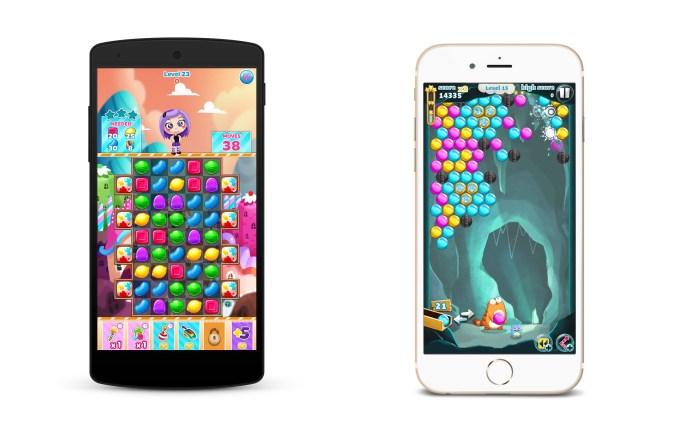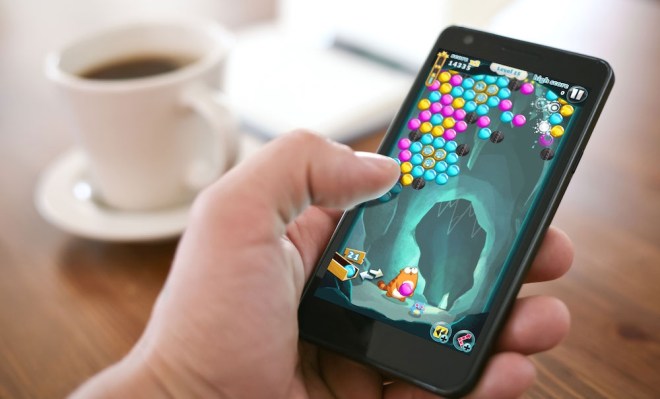It’s been quite a year for Viber, and now the mobile messaging company is seeing out 2014 with arguably its most significant release to date: the launch of a social games platform.
Viber, which was bought by Japan’s Rakuten for $900 million back in February — right before Facebook acquired WhatsApp — is taking a leaf from the Asian messaging app playbook with the launch of an initial three games. It isn’t a global launch however. These titles will be available for iOS and Android users in five markets initially — Belarus, Malaysia, Israel, Singapore and the Ukraine — with the company planning to roll them out to all Viber users worldwide in January 2015.
Earlier this year, founder Talmon Marco said Viber would introduce games before the end of 2014, and the company has just about stuck to that timeline. Just about.
Like other chat apps, linking a Viber account to the games platform will allow users to tap their social graph to do things like send gifts to friends, check social-powered game leaderboards, challenge friends, battle friends, share their scores and more. Viber will also make money from any virtual items bought inside the games, minus the cut that Apple and Google take on Android and iOS respectively.
Viber’s initial game developer partners are Storm8 — which created Viber Candy Mania and Viber Pop, pictured below — and Playtika, which developed the Wild Luck Casino title. The characters in the games are the same as those featured in Viber’s sticker collections, which is a nice touch.

Viber will look to the examples of Korea’s Kakao Talk, which became profitable last year thanks to its games platform, and Japan’s Line, which clocked $192 million in Q3 2014 revenue thanks to games and has seen over 300 million cumulative downloads from its two-year-old gaming platform.
A Curated Selection Of Games
Marco told TechCrunch in an interview that the company is aiming to maintain a clutch of handpicked titles rather than a huge number of games. To that point, the ‘Viber Connect’ API is staying private for selected partners only.
“We will partner with other game developers in the future, but our approach is not to have hundreds of games, just small highly curated selection,” he said.
“We have wanted to do games for quite a while, our plans have been in process long before the acquisition,” Marco added.
Social gaming began with companies like Kakao Talk, WeChat and Line in Asia, but this year has seen the likes of Kik, Tango and now Viber — services that have significant user bases in the West — enter the fray. Marco said he is looking forward to the reaction of Viber’s 209 million monthly active users, but he also outlined that Viber’s games platform has been designed so as not to interfere with the core messaging experience for users.
There is a dedicated section inside the app for game notifications and other related messages, and users can opt out of that if they wish.
“If you don’t want to play games, Viber will stay exactly how it is for you… but the games are a lot of fun,” Marco said, laughing at his own addiction to Viber Pop.
In addition to an upcoming global launch for games and the introduction of more titles for users, Marco teased a number of “commercial tie-ups” that will come to Viber in the first quarter of 2015 to “give users more capabilities.”
We recently saw Tango partner with Spotify, while Line is launching music streaming and video services, so it seems logical that Viber will jump into entertainment at some point — particularly given the recent introduction of Viber Chat, a communication platform that lets celebrities and entertainers to tap into the service’s global presence.
First up though, the company is preparing to submit its final update for 2014, which will bring iPhone 6 and iPhone 6+ compatibility to Viber for iOS.
